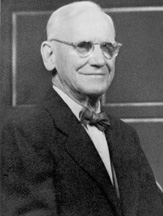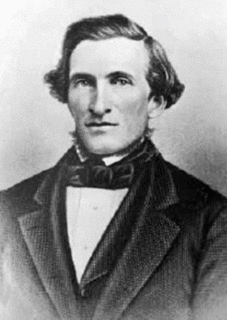A Quote by Oscar Wilde
The value of an idea has nothing whatsoever to do with the sincerity of the man who expresses it. Indeed, the probabilities are that the more insincere the man is, the more purely intellectual will the idea be, as in that case it will not be coloured by either his wants, his desires, or his prejudices.
Related Quotes
The natural state of mankind ... and I know that this is a controversial idea... is freedom... And the proof is the lengths to which a man, woman, or child will go to regain it once lost. He will break loose his chains. He will decimate his enemies. He will try and try and try again, against all odds, against all prejudices.
Giving free advice is a sad waste of effort. In the first place, no man will act upon it unless he is already inclined to do so. Secondly, when a man lays his case before you, the idea that he is asking your advice is a polite fabrication. He merely is suggesting that he is doing so, while as a fact his real object is to acquaint you with his personal activity. He wants to talk to somebody, being a natural gossip or gadder, and he plays upon your propensity for "giving advice" in order to get an audience.
The difference between a man who faces death for the sake of an idea and an imitator who goes in search of martyrdom is that whilst the former expresses his idea most fully in death it is the strange feeling of bitterness which comes from failure that the latter really enjoys; the former rejoices in his victory, the latter in his suffering.
A man that advances in spiritual and in temporal matters at the same time, minding to keep the spiritual first, will not let the temporal lead him; he will not place his heart upon his farm, his horses, or any possession that he has. He will place his desires in heaven, and will anchor his hope in that eternal soil; and his temporal affairs will come up as he advances in the knowledge of God.
The Sentimentalist, roughly speaking, is the man who wants to eat his cake and have it. He has no sense of honor about ideas; he will not see that one must pay for an idea as well as for anything else. He will have them all at once in one wild intellectual harem, no matter how much they quarrel and contradict each other.
I learned that it is better, a thousandfold , for a proud man to fall and be humbled, than to hold up his head in his pride and fancied innocence. I learned that he that will be a hero, will barely be a man; that he that will be nothing but a doer of his work, is sure of his manhood. In nothing was my ideal lowered, or dimmed, or grown less precious; I only saw it too plainly, to set myself for a moment beside it.
And you who wish to represent by words the form of man and all the aspects of his membrification, relinquish that idea. For the more minutely you describe the more you will confine the mind of the reader, and the more you will keep him from the knowledge of the thing described. And so it is necessary to draw and to describe.
Truth and falsity, indeed understanding, is not necessarily something purely intellectual, remote from feelings and attitudes. ... It is in the total conduct of men rather than in their statements that truth or falsehood lives, more in what a man does, in his real reaction to other men and to things, in his will to do them justice, to live at one with them. Here lies the inner connection between truth and justice. In the realm of behavior and action, the problem recurs as to the difference between piece and part.
The faithful man perceives nothing less than opportunity in difficulties. Flowing through his spine, faith and courage work together: Such a man does not fear losing his life, thus he will risk losing it at times in order to empower it. By this he actually values his life more than the man who fears losing his life. It is much like leaping from a window in order to avoid a fire yet in that most crucial moment knowing that God will appear to catch you.
Man will become immeasurably stronger, wiser, and subtler; his body will become more harmonious, his movements more rhythmic, his voice more musical. The forms of life will become dynamically dramatic. The average human type will rise to the heights of an Aristotle, a Goethe, or a Marx. And above these heights, new peaks will rise.






































